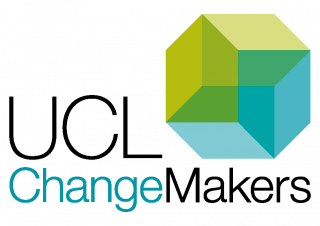“Co-creation of learning and teaching occurs when staff and students work collaboratively with one another to create components of curricula and/or pedagogical approaches.” (Bovill et al, 2016)
What we mean by "co-creation"
Co-creation can be understood as both something that can inform curriculum and assessment design (e.g., a project prior to teaching taking place to re-design the curriculum or produce new teaching resources) as well as something that can happen within the curriculum (all students within a module co-create an assignment task). The latter is a whole-class approach and involves all students in a module/programme whereas the former involves a smaller number who have put themselves forward for the opportunity. Co-creation is based on a constructivist view of knowledge as something that that is socially constructed rather than being something that is passed from teacher to student.
Co-creation is an aspect of student-staff partnership. It draws on the knowledge and pedagogical expertise of staff and the diverse perspectives and experiences of students. But it is also a different way of working that disrupts more traditional staff/student relationships, asking both students and staff to occupy new roles within the process of learning that may feel unfamiliar. For this reason, Bovill recommends viewing co-creation as a spectrum through which both staff and students need to build their confidence.
Co-creation as a equity-seeking practice
Student-staff partnerships (SSP) should be open to all and reflect and promote the diverse learning communities at UCL. This includes not just those who take part in the partnerships themselves, but also through the improvements the projects are seeking to make. Cook-Sather argues that: "because a sense of nonbelonging/belonging uncertainty is inextricable linked with the feeling of 'instantaneous disconnection', students from equity-seeking groups feel, it is especially important that institutions provide opportunities from equity-seeking groups to develop a sense of agency that inspires them to [...] seek and make connections, places and meaning for themselves.'" (Alison Cook-Sather, 2018). Further, through engagement in student-staff partnership, students from traditionally under-represented groups gain deep insights and understandings of their own academic engagement and the processes that underpin education, which go on to help staff understand and reflect on how to support student success.
““...if we all engaged in partnerships through which we...discuss how teaching and learning experiences can include and value everyone, our campuses would become places of belonging.” (Colón García, 2017
Co-creating the curriculum - and even some of the process around it e.g. co-creation of marking rubrics - is one way that we can begin to unpick some of the systemic inequities in Higher Education. By its very nature, co-creating with students is seeking to do things differently rather than replicate existing systems, processes and challenge what knowledge we privilege in education. Discussing teaching with students from under-represented and marginalised groups can help build empathy, understanding and cultural sensitivity that can be enacted in the curriculum in an intentional way, as well as building empathy and understanding for teachers and teaching with the students who are engaging.
What are the benefits of co-creation?
- Co-creation engages students in higher order thinking skills and engages them more deeply in not only the subject content but in its meaning and application.
- Involving students in curriculum design brings in fresh perspectives and insights.
- Co-creation empowers under-represented groups to have a say in what is taught which helps ensure that the curriculum is a more rounded, inclusive place to examine multiple perspectives and experiences rather than privileging certain viewpoints and forms of knowledge.
- Students in general feel better prepared to engage in a global world through examining topics through different lenses and perspectives.
 Close
Close


